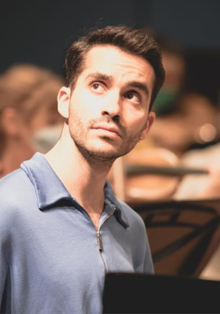Dr. María del Carmen De Benito
General Counsellor of the CGCEE for the territory of Mexico
Our Magna Carta, the basic instrument for coexistence that we Spaniards gave ourselves in 1978, enshrines in Article 10 the recognition of the DIGNITY OF THE PERSON AND THEIR INHERENT AND INVIOLABLE FUNDAMENTAL RIGHTS. The same article establishes the criteria for their interpretation in accordance with the Universal Declaration of Human Rights and the international treaties and agreements ratified by Spain. In turn, this protection also extends to Spanish emigrants, as Article 14 states:
“Spaniards are equal before the law, without any discrimination on grounds of birth, race, sex, religion, opinion or any other personal or social condition or circumstance”
in relation to Articles 1, 2 and 3 and Article 23 of Law 40/2006, of 14 December, on the Statute of Spanish Citizenship Abroad.
Special holders of fundamental rights are CHILDREN, who possess these human rights in a privileged or reinforced form, under the legal principle of the best interests of the child, and therefore require extra protection. Undoubtedly, one of the fundamental human rights held by children is the RIGHT TO EDUCATION and the cross-cutting rights to security (safe education), and to equal treatment (education without discrimination), among many others. These are rights that the most purist doctrine classifies as SOCIAL, PROVIDED (the State must procure the provision of education for children, art. 27 and following, art. 42 and following constitutional articles), with defensive/reactionary content (equality is possessed unconsciously without the State being able to hinder it with its actions).
The question is, do our Spanish children have protection abroad, as part of the Spanish emigrant’s family? This is not a minor question and it is undoubtedly a matter for the Spanish authorities in the diplomatic mission (Embassy and its consular offices and the Residents’ Councils-art 3.b Royal Decree 1960/2009, of 18 December).
Let us imagine a serious violation of the RIGHT TO EDUCATION, with its mentioned transversal rights, of a Spanish child in a destination country (whether the violation comes from the host State or from another third State, for example a foreign educational institution in that State, an international school or lycée). What instruments exist to protect that child?
1.- Purely diplomatic instruments (notes of protest, notes of complaint to the violating State or to the third State involved in the violation of HR). Dialogue is always an instrument of settlement.
2.- International human rights protection systems
A) Universal human rights protection system based on the International Covenants on Civil and Political Rights and on Economic, Social and Cultural Rights. Depending on whether the alleged State violating human rights has signed and ratified the conventions and the optional clauses, there can be 3 types of control before the UN Human Rights Commission.
-Normal control – via information. This is provided by the States by means of a report on the respect they have for Human Rights in their territory.
-Control by inter-State denunciation. That is, complaints from State to State. In this case, from our country to the offending State.
-Exceptional control of the violated citizen’s own HR.
B) Regional human rights protection systems. In our case, the Human Rights Commissions of the Council of Europe (in America it would be the IACHR of the OAS). The control systems are almost identical to the previous ones (1. Normal control, via information; 2. Control by inter-State denunciation; 3.)
3. National protection systems of each host state. Undoubtedly there are States that lag behind in domestic systems of HR protection, and even deconstitutionalisations of the most elementary HR or frequent and recurrent violations by private individuals and local authorities. Sometimes these are states that have not ratified many international Human Rights conventions or, if ratified, do not include their optional clauses of voluntary subjection to them.
The recent events in an international Lyceum in Mexico City, where the most elementary HUMAN RIGHTS of two Spanish children were violated, make us reflect on the effectiveness, not only of the national protection systems, in this case the Mexican system, slow and sometimes corrupt, but of our country’s protection of these two Spanish minors, who deserve all the protection of our legal system, by virtue of constitutional norms and diverse legislation.
We cannot tolerate this inaction on our part. We talk so much about human rights (including migrants who come to our country from other parts of the world) that we do little or nothing for our Spanish children abroad. As general councillor for the Spanish community in this great country that is Mexico, in the CGCEE, I want to highlight this problem that can affect our children abroad, even creating in the future a delegated commission in the CGCEE itself on Human Rights or, at least, a subcommission in the Civil Rights Commission or in the one that deserves a fairer incardination.
© All rights reserved





